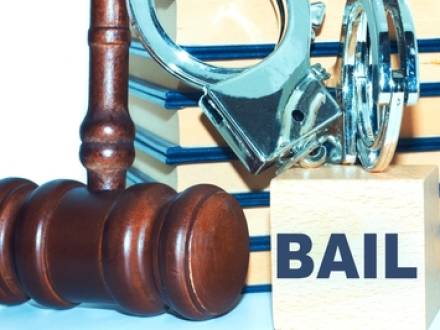Top Misconceptions About Bail Bonds in Texas
 With more than 1.4 million arrests each year, you can imagine how many defendants must navigate the Texas bail bond system each day. The bail bond system is confusing enough without the misinformation that commonly circulates online, in jail holding areas, and even among well-meaning friends and family members. These myths can lead defendants to make costly mistakes.
With more than 1.4 million arrests each year, you can imagine how many defendants must navigate the Texas bail bond system each day. The bail bond system is confusing enough without the misinformation that commonly circulates online, in jail holding areas, and even among well-meaning friends and family members. These myths can lead defendants to make costly mistakes.
If you have been arrested in Texas, understanding the truth behind the most common bail bond misconceptions is the best way to ensure your rights are protected while avoiding additional legal trouble. When you choose a Dallas, TX bail bondsman from Doc's Bail Bonds, you have chosen a company with an exemplary reputation in North Texas that will work with you to help ensure your success.
How Do Bail Bonds Work in Texas?
The purpose of a bail bond is to ensure a defendant’s appearance in court. The judge may ask for cash bail, surety bonds, or personal bonds. Cash bail requires the defendant or a third party to pay the full bail amount in cash to the court. A surety bond involves a bond company.
The defendant typically pays 10-20 percent of the total bond to the bail bondsman, who then posts the full bond amount with the court. A personal bond allows a defendant to be released on the condition that he or she appear in court, with no money up front required. The most common myths associated with bail bonds include:
A Bail Bond Company Can Get the Charges Dropped
Bail bond companies do not influence charging decisions, and only prosecutors and courts can dismiss charges. Bail bond companies only ensure the defendant's appearance; they do not provide legal defense. In short, a bond company could never have charges dropped.
The Bond Fee is Returned if the Defendant Is Found Not Guilty
Texas bond fees are non-refundable; they are a fee for the convenience of posting bail on the defendant’s behalf. Even if the charges are dismissed, reduced, or the case is acquitted, the fee remains with the bondsman.
Missing One Court Date is Not a Big Deal
In fact, missing a court date – even just one – is a very big deal. Failure to appear can lead to bond forfeiture, a new arrest warrant, and criminal charges like bail jumping and failure to appear. The bond company can revoke the bond and return the defendant to custody.
Collateral is Not a Requirement
When higher bonds are at issue, many Texas bond companies require collateral in the form of vehicles, property, cash, firearms, or jewelry. Collateral protects the bondsman if the defendant should flee the jurisdiction. If the collateral is lost due to a bond forfeiture, the bail bond company will seize and liquidate it to cover the full bail amount owed to the court.
Bail is the Same in Every Texas County
This is not the case. Each county has its own bond schedules, local rules, release programs, and pre-trial services. As an example, Harris County uses risk-assessment tools and PR bonds more often, while rural counties tend to rely more on cash or surety bonds.
The Bond Company Can Negotiate the Bail Amount
Bond companies cannot lower bail, request reductions, or influence terms. Only judges or magistrates can modify bail, and defendants can only request a bond reduction through their defense attorneys.
Co-Signers Do Not Have Any Real Responsibility
This is most definitely not true. Co-signers are financially responsible if the defendant flees, the bond forfeits, or the bondsman has to hire bounty hunters. In these situations, the co-signer may owe the full bail amount to the bail bond company.
Contact a Collin County, TX Bail Bondsman
When you choose Doc's Bail Bonds, you have chosen one of the oldest and most respected bail bond companies in Texas. As a former baseball team manager, Doc has built his bail bond business from the ground up, focusing on a trusted team, integrity, and extensive experience. Our Dallas, TX bail bondsman will be with you, guiding you through the process every step of the way.










